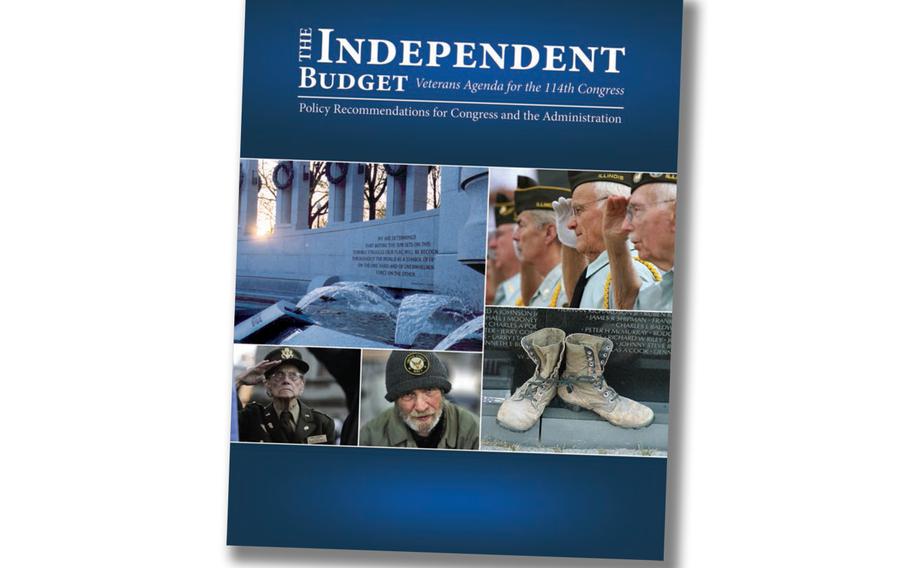
The Independent Budget – Veterans Agenda for the 114th Congress ()
Four top veterans service organizations on Thursday released their annual list of priorities for the Department of Veterans Affairs and Congress. Here are some highlights from the 29th edition of the groups’ “Independent Budget”:
1. Timely access to VA health care
Congress should invest significant new funding in VA – likely more than $500 million in the coming fiscal year – to grow capacity with new staff and up-to-date facilities. The VA should better monitor how patients are referred to non-VA health care providers, especially through the newly created Veterans Choice Card, to make sure the system is not creating more referral backlogs, veteran billing problems and access issues.2. Vet Claims and Appeals
The department must “openly and honestly” reassess whether its goal, created five years ago, that all claims would be completed within 125 days with 98 percent accuracy by the end of 2015 remains realistic and achievable. Congress should pass legislation for an appeals pilot program that would streamline the process for vets willing to collect private evidence to justify their appeals, a change that could shave years off the process.3. Buildings and maintenance
VA must begin requesting more funding to close $56 billion to $68 billion worth of gaps in safety, condition, access and utilization among its buildings, and give Congress a five- and 10-year plan that will systematically describe when and how VA plans to close each gap. In maintenance alone, the VA must increase its annual budget from $462 million to $1.35 billion.4. Caregiver support
Include veterans who incurred a service-connected injury or illness prior to 9/11 in the Caregiver Support Program, which is designed to educate and foster the assistance. Congress and the VA should conduct a national survey of family caregivers for seriously disabled veterans to determine caregiver satisfaction. The VA should amend its caregiver education and training program to account for the primary caregiver’s experience and be more transparent with the application process and details about the program.5. Women veterans
The VA should work to reverse a veteran culture that women often perceive as unwelcoming and unequal. Women veterans more often suffer from post-traumatic stress disorder, depression and other service-related conditions, and the VA and Defense Department should create pilot programs that cater more directly to them, such as teleconference group therapy.Source: The Independent Budget – Veterans Agenda for the 114th Congress